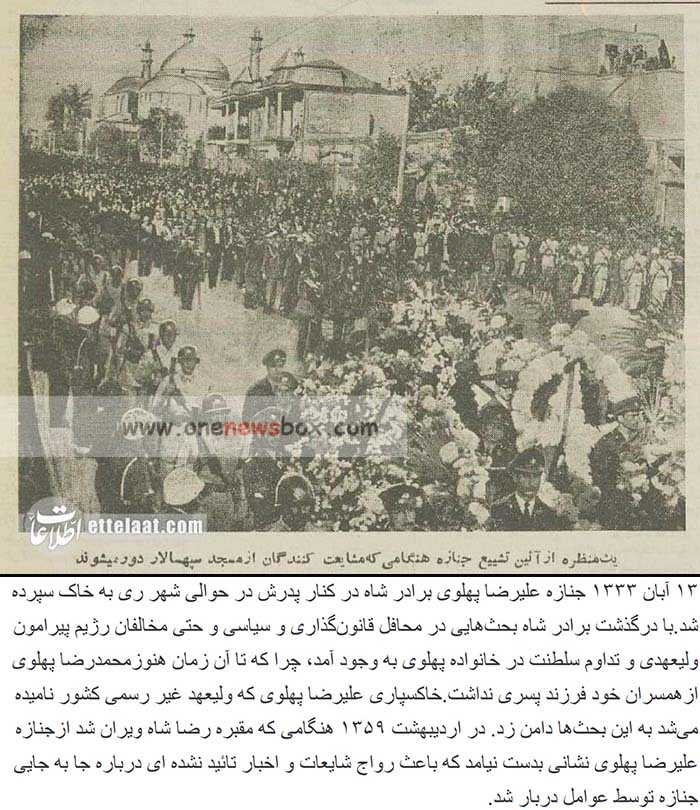On November 13, 1333 (according to the Iranian calendar, which corresponds to 1954 in the Gregorian calendar), Alireza Pahlavi, the younger brother of Mohammad Reza Shah Pahlavi of Iran, was laid to rest near his father, Reza Shah Pahlavi, in the historic city of Ray. Alireza Pahlavi’s untimely death sparked considerable conversation within Iran’s legislative and political circles, as well as among opponents of the monarchy, particularly concerning the future of the Pahlavi dynasty. Alireza, who held a prominent and beloved position as an unofficial crown prince, was mourned across the country, and his burial stirred public discourse about succession. Given that Mohammad Reza Shah did not yet have a male heir, questions arose about the monarchy’s future in the absence of a direct successor.
In 1980, however, Reza Shah’s mausoleum in Ray was destroyed during the turbulent period after the Iranian Revolution of 1979. This event also intensified rumors and speculation about Alireza’s resting place. No official record of Alireza’s remains was found at the site, and stories began circulating that his body had been moved by individuals loyal to the monarchy. This incident fed the nation’s fascination with both the Pahlavi legacy and the intrigue surrounding the royal family.
The story of Alireza Pahlavi’s life, death, and burial is one of both deep national significance and family tragedy, providing a window into the political complexities of Iran during the mid-20th century. Here, we’ll explore the life of Alireza Pahlavi, the historical context of his death, the aftermath of his burial, and the lingering legacy of the Pahlavi family in Iran.

